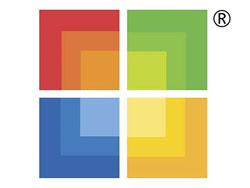With the launch of the Windows 7 operating system, the Redmond-based software giant also opened its first Microsoft Stores. You know, the ones that Microsoft’s Chief Operating Officer, Kevin Turner, announced at the Worldwide Partner Conference WPC) in New Orleans earlier this year. The great thing about these retail stores is that if you purchase a PC with Windows 7 on it from a Microsoft Store, it will not come with bloatware or crapware.
The simple truth of the matter is that new Windows 7 PCs come with a whole bunch of trial software applications preinstalled on them. The goal here is to get you to test these applications and perhaps purchase a full version – assuming you really like them. But in most cases, users don’t want or don’t need these trial programs. So they end up unnecessarily taking up space and bloating the OS (hence the name bloatware – which is a lot better than crapware).
The even more annoying part is that all this bloatware, all this crapware that you don’t even want, will negatively impact the performance of the new Windows 7 PC. The time it takes the PC to boot is longer and it’s responsiveness is inferior to bloatware-free Windows 7 PCs.
Microsoft wants Windows 7 to be a huge success, and so far it’s been working great for the Redmond-based software giant. The operating system has received great reviews ever since it was in Beta, has performed quite well when it reached the RC (Release Candidate) milestone, and when it became available for pre-order it even surpassed Harry Potter and the Deathly Hallows as the biggest grossing pre-order product of all-time at Amazon.co.uk. This bloatware/crapware issue does not go down well with Microsoft. So Microsoft decided that all Windows 7 PCs sold in its retail stores will be bloatware-free.
Perhaps OEMs (Original Equipment Manufacturers) will follow Microsoft’s example and will no longer install bloatware on new PCs. Nobody likes bloatware anyway, and Microsoft was keen enough to pick up on it.
TIP: If you already purchased a new Windows 7 PC it came with tons of bloatware, check out this tutorial.
The simple truth of the matter is that new Windows 7 PCs come with a whole bunch of trial software applications preinstalled on them. The goal here is to get you to test these applications and perhaps purchase a full version – assuming you really like them. But in most cases, users don’t want or don’t need these trial programs. So they end up unnecessarily taking up space and bloating the OS (hence the name bloatware – which is a lot better than crapware).
The even more annoying part is that all this bloatware, all this crapware that you don’t even want, will negatively impact the performance of the new Windows 7 PC. The time it takes the PC to boot is longer and it’s responsiveness is inferior to bloatware-free Windows 7 PCs.
Microsoft wants Windows 7 to be a huge success, and so far it’s been working great for the Redmond-based software giant. The operating system has received great reviews ever since it was in Beta, has performed quite well when it reached the RC (Release Candidate) milestone, and when it became available for pre-order it even surpassed Harry Potter and the Deathly Hallows as the biggest grossing pre-order product of all-time at Amazon.co.uk. This bloatware/crapware issue does not go down well with Microsoft. So Microsoft decided that all Windows 7 PCs sold in its retail stores will be bloatware-free.
Perhaps OEMs (Original Equipment Manufacturers) will follow Microsoft’s example and will no longer install bloatware on new PCs. Nobody likes bloatware anyway, and Microsoft was keen enough to pick up on it.
TIP: If you already purchased a new Windows 7 PC it came with tons of bloatware, check out this tutorial.

























